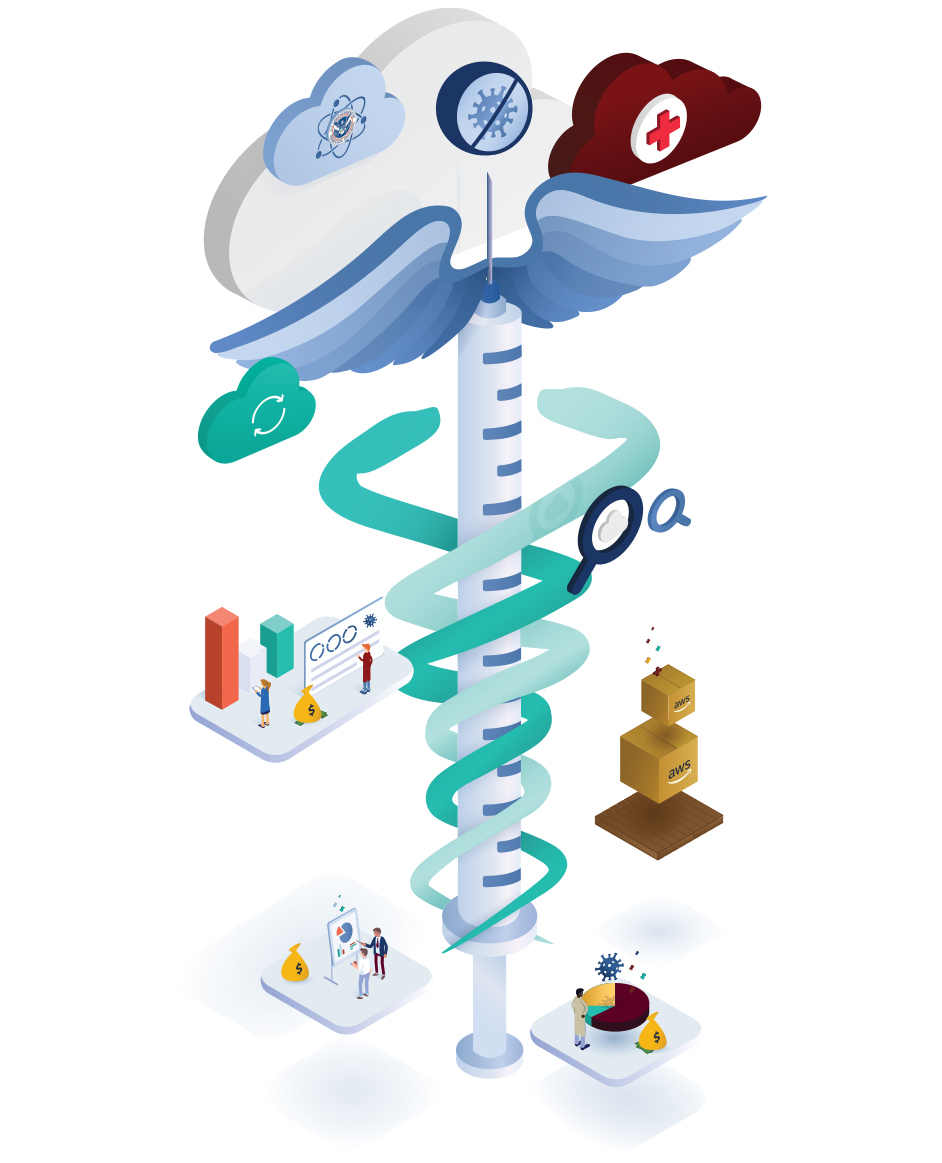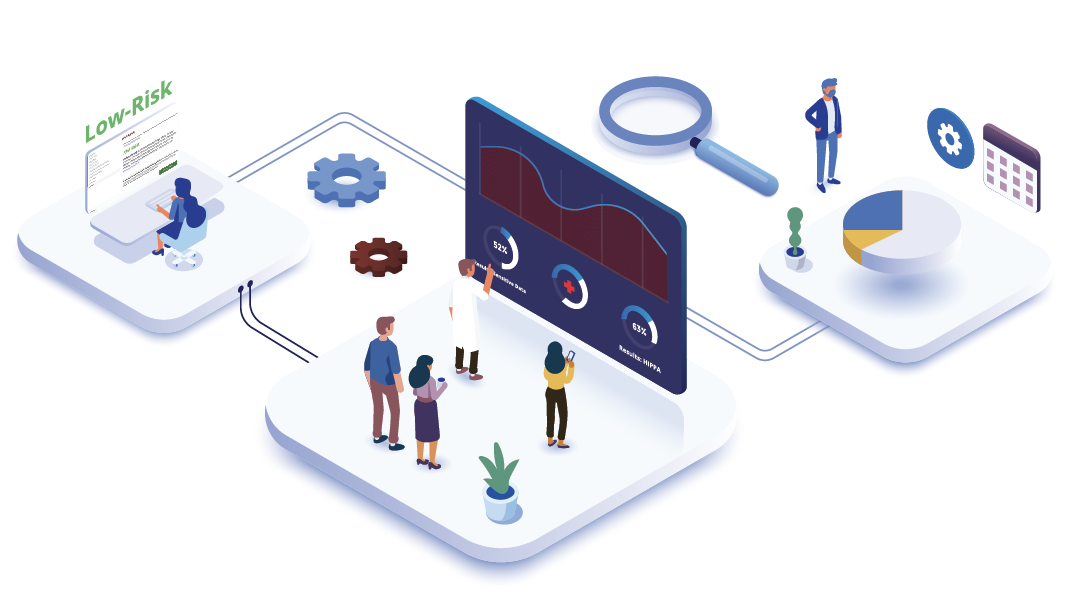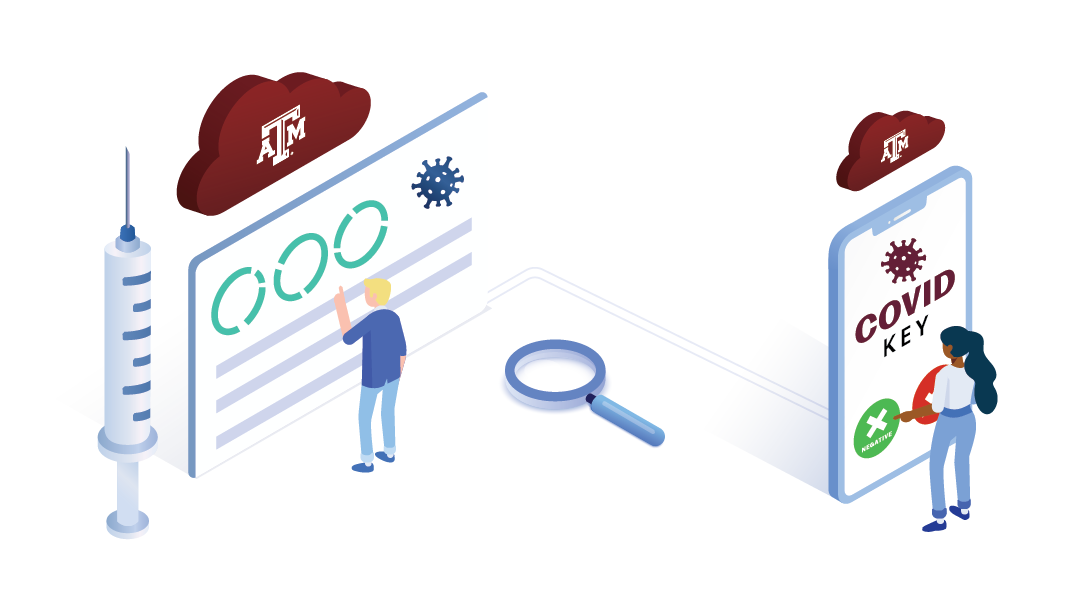Research Support
Successful Research
Technology is now more than a tool to help researchers, it is integrated into the research itself. In the past, researchers would collect and store hundreds of data points on a flash drive. Now data points collected can easily number in the millions. It takes powerful computing resources to handle these data sets, and successfully establishing and executing a technology strategy is critical to the success of our researchers.

As we move forward, a key area of focus will be supporting our partners in their research efforts. By helping researchers identify and implement their tech platforms, they can spend more time focused on their research and not the technical infrastructure needed to support it. Core to this goal is providing access to leading-edge technologies including cloud computing, 5G and IoT to power cutting-edge research.
Supporting Innovation
Researchers must have access to powerful computational and analysis platforms to be successful. The Division of IT will create a team dedicated to supporting researchers with technology. The research support team will focus on integrating technology with research to both facilitate grant applications and fulfill tech needs once funding is awarded.
Research support starts with funding proposals. The team will be available to offer consultation on system specifications and resource requirements for grant proposals. Once funding is awarded, the Division of IT will provide dedicated resources to assist researchers with technology implementations.
- Find the right combination of fully managed and scalable computing services for a project's needs and budget.
- Help researchers transition their analyses and models from desktops and departmental servers to more robust and scalable cloud resources when relevant.
- Provide consultation and support for all the tech platforms available on campus, ensuring systems are used in an effective and efficient way.
- Partner with vendors to bring cutting-edge technology services to campus and build custom platforms to enable easy access for all researchers.
Achievements
STRIDES Environment Opens Doors for Biomedical Researchers
Texas A&M University has entered an agreement with the National Institutes of Health - Science and Technology Research Infrastructure for Discovery, Experimentation, and Sustainability (STRIDES) initiative. STRIDES provides access to rich datasets and advanced computational infrastructure for biomedical researchers. The division will release a new STAR/STRIDES environment in Amazon AWS in April.
AIP Supports High Performance Research Computing
To enhance campus research efforts, the Aggie Innovation Platform (AIP) partnered with High Performance Research Computing to run a pilot of RONIN. The managed computing environment assists advanced and high-performance computing environments with sustainability and compliance.
Find Research Resources Based on Data Classification
Researchers can now easily compare different cloud storage solutions based on needed encryption levels and their data classification using the Available Research Resources chart. The chart includes a link to the division’s data classification tool, which helps researchers determine if they are working with public, confidential or critical data. Additional resources will be added as they become available.
STAR Provides New Tools for Researchers
CloudBolt is being implemented by Secure Technologies for Aggies Researchers (STAR) as a self-service component. The move will standardize deployments for common Amazon Web Services (AWS) storage and compute services with the ability to connect across other cloud providers, such as Microsoft Azure.
Maximizing Value
Researchers Save Time Submitting Grant Applications
The division released the Data Classification + Research Resources tool to help researchers simplify and streamline the process of submitting data classification and technology requirements for their grant applications, especially when PHI is involved. The tool ensures the university follows data privacy and protection requirements, as well as state and federal law.

Improving Accuracy of Funding Proposals
Researchers can save time using a list of templates to accurately and efficiently prepare research proposals. The templated statements include information on the campus network, data centers, Aggie Innovation Platform (AIP) and Secure Technologies for Aggie Researchers (STAR) cloud technology, cybersecurity, FERPA and HIPAA data protection, and the Texas Data Repository (TDR). The templates have also been added to the university’s Data Management Plan (DMP) Tool.
Partner Success
New App, Portal Monitors Livestock Health
The Department of Animal Science and AgriLife Extension are beta testing a Livestock Syndromic Surveillance mobile app designed to prevent the spread of infectious disease among livestock. Created by the Division of IT, the portal and app allow veterinarians to report various syndromes seen in the field, helping practitioners and state officials track and prevent the spread of diseases to keep meat prices from rising. The mobile app and corresponding web portal will launch in early 2022.
Prevent COVID U Project Identifies Early Infection
Texas A&M is using STAR for its participation in the Prevent COVID U program through the COVID-19 Prevention Network (CoVPN). The project is studying breakthrough infections and spread among 18-29 year olds who received the Moderna vaccine. Participants take daily COVID-19 tests at home and use a mobile app called COVID Key. The app is also connected to a mobile kiosk. The clinical markers obtained are correlated with data in the STAR environment about the participant’s status to discover correlations indicating early infection. Read more about the research.

Urban Reselience.AI Lab Predicts COVID Surges
The Urban Resilience.AI Lab, is using the Aggie Innovation Platform (AIP) to predict the spread of COVID-19 cases for U.S. Counties. The lab’s deep-learning model analyzes vast amounts of data to forecast with 64% accuracy — twice the accuracy of an untrained model. Read more about the research.
CBTS Monitors COVID Supply Chain impact
Texas A&M’s Cross-Border Threat Screening and Supply Chain Defense (CBTS), the Stochastic Geomechanics Laboratory and Engineering IT are using AIP for a hybrid on-premise/cloud computing model. The COVID-19 Binational Dashboard produces analytics regarding the impact the pandemic is having on supply chain systems and identifies vulnerabilities. Read more about the research.
Making Strides in Solving Healthcare Problems
Texas A&M clinical assistant professor and researcher, Joy Alonzo, is using STAR technology to help solve critical healthcare challenges. The Texas A&M Opioid Task Force is using STAR technology for the Opioid Relapse Prevention Program Development, a 2021 winner of the Presidential Clinical Research Partnership (PCRP) program. A second “moonshot” project sponsored by Blue Cross and Blue Shield of Texas, is using STAR and a mobile app to direct citizen responders in Milam county to incidents the limited ambulance service cannot reach in time. A third project, being submitted to the FDA for approval as a medical device, prompts type-2 diabetics to adhere to their treatment plan. Read more about the research.